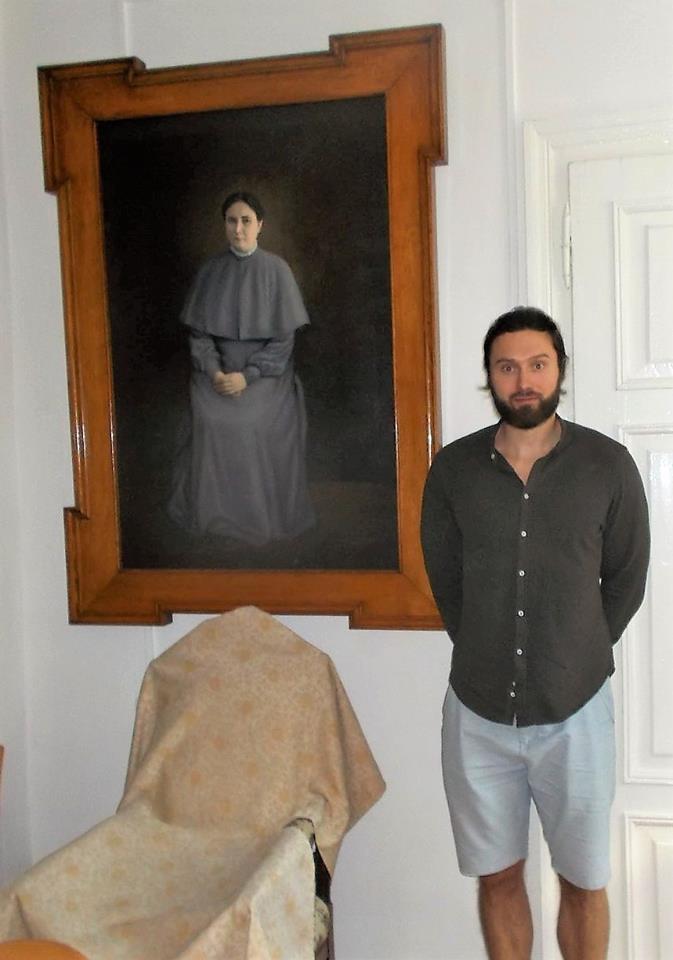
Jerzy Nowosielski (1923-2011), a prominent Polish Orthodox theologian, once said that Poland was perhaps pious but not a religious country because in contrast to its close neighbours, Russia and Germany, it has never created any serious “heresy”. There might, however, be one example that contradicts this statement. Despite being broadly unknown, even in Poland, it still remains an ambitious project which once tried to introduce God’s Kingdom on Earth.
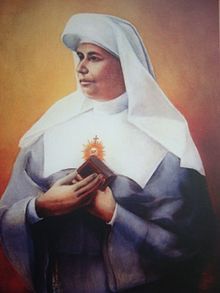
The story has lowly origins. It started in 1893, when Felicja Kozłowska (1862-1921), a Roman Catholic nun, later known as Mateczka, received revelation from God ordering her to transform sinful habits of priests by establishing a new religious institution called the Mariavite order. They were supposed to follow a Franciscan lifestyle and promote some of the standard Catholic devotions, such as the perpetual adoration of Blessed Sacrament or honouring Our Lady of Perpetual Help. Due to many complex and intersecting factors, such as the role of women in the Polish Church, the geopolitical context (Poland was partitioned between Prussia, Russian Empire and Austrian Empire), and lack of communication between the Polish Catholic hierarchy and Mariavite priests, there was eventually a breach and Mateczka would represent the first occurrence in the history of Roman Catholic Church of an individually named woman excommunicated as a heretic by the pope, rather than for adherence to a group classified as heretical. Due to the constraints of space the full range of complex issues cannot be addressed but it is worth noting that there was nothing obviously “heretical” in her visions, a position even noted by certain Roman Catholic scholars (e.g., Stanisław Bajko SJ) who took their time to investigate the situation.
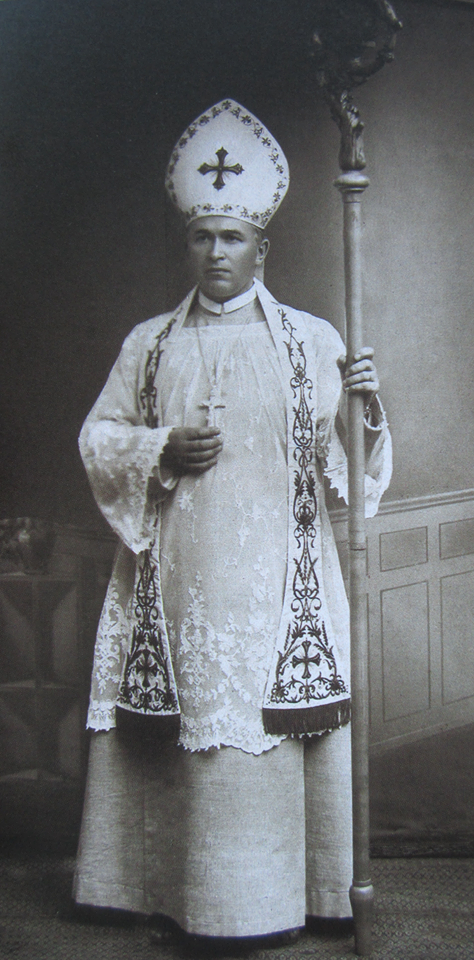
After death of Mateczka in 1921, archbishop Jan Maria Kowalski (1871-1942) became the most authoritative voice in the newly formed church. Here we find ourselves in the period of Mariavite church history which is the most difficult to assess for historians. Whether reforms he introduced would have been accepted by Kozłowska, or would have been instantly rejected is a matter of broader investigation. What we can say is that when they found themselves outside their mother Church, Mariavites immediately directed their attention towards the Scriptures looking for answers explaining their current position. Quite quickly they noticed that the Bible speaks about “a new heaven and a new earth, the home of righteousness” (2 Peter 3:13). Looking up to their spiritual champion, they continually pronounced her holy, something she vehemently dismissed. In her opinion holiness was reserved exclusively for God and, as God might be occasionally jealous (Exodus 20:5), she tried hard not to abuse his mercy. Yet just before her death it is possible that she might have finally come to accept this practise.
What, then, was this new earth? What role did Mateczka play in it? And who were these people of righteousness? Some understanding of the broader political and theological contexts of the story can help here. From 1772 onwards, Poland found itself under occupation of foreign political powers. Plenty of educated people were either forced to migrate to other countries or would decide to stay and face hardships. Feeling alienated and overwhelmed, they came up with the concept of a messianic role which Poland was called to play in the history of humankind. Comparisons to Jesus seemed prescient. He suffered innocently, although he took his lot valiantly. Size was the main difference, given the fact that in the case of Jesus only one person was concerned, whereas here the whole nation was affected. Nevertheless, Polish national bards, shying away pessimistic thoughts and seemingly filled with religious fervour, expected brighter future. Just like after the death of Jesus a new community was constituted, so too a new church was eagerly awaited.
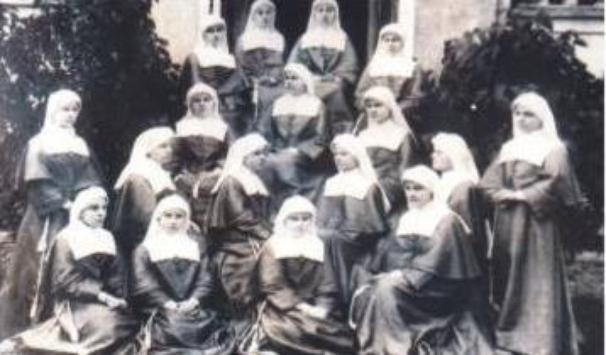
Additionally, not a few millenarian movements grew between the seventeenth and nineteenth centuries. In the context of the Roman Catholic Church it is worth mentioning theological works of Macuel Lacunza SJ (1731-1801) or Bernard Lambert OP (1738-1813). In the context of Protestantism, we might mention Edward Irving (1792-1834) or the Anglican convert, Joseph Wolff (1795-1862). According to Polish Adventist theologian and scholar, Zachariasz Łyko (1929-2008), Polish national bards (Adam Mickiewicz [1798-1855], Andrzej Towiański [1799-1878], Józef Hoene-Wroński [1776-1853]) were significantly influenced by the thought of the Second Advent. It is no accident that these are exactly the same bards whom we can find mentioned in the pages of Kowalski's "Lecture on Revelation" (Wykład na Apokalipsę, firstly published in 1923). There are some others, most notably Julisz Słowacki (1809-1849). As reported by Kowalski, they all prophesized about new church of the Holy Ghost, Mateczka and the role of Poland in the fate of Christianity.
These poets were understood to be playing a similar role to a specific Christian understanding of the Old Testament prophets who prepared paths for the coming of Jesus, the second Adam. Generally speaking, Poles, playing apparently the role of modern-day Israelites, ignored their voices and seemingly rejected God’s messenger. It was thought that they did it because they blindly followed the pope. Thus, it didn't take long for Kowalski to compare the papacy to the "Mother of prostitutes" (Revelation 17:5). Roman Catholic Church became a desolated house (Matthew 23:38) and the center of Christianity was moved to Płock where the Temple of Mercy and Charity was set up shortly before (1911-14). Such transitions have been observable in the Church history with the transfer of power from Jerusalem to Rome, then to Constantinople and finally to Moscow according to ecclesiological preferences. This time the stakes were much higher though. It was no longer about the orthodoxy of faith; it was rather about inauguration of God's Kingdom on Earth.
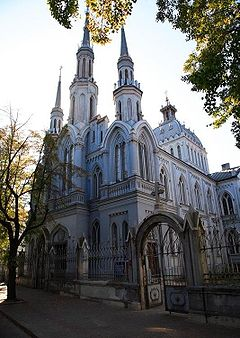
When Mateczka died her ontological status was gradually elevated to the highest level of sanctity, which was met with unease on the part of some prominent figures in the church. She became a second Mary, a second Eve, like a Son of Man (Revelation 1:13) and finally embodiment of Holy Ghost. The church she inaugurated became "new Jerusalem, coming down out heaven from God" (Revelation 21:9). This new Kingdom didn't need Jesus to come down on clouds, because he was perpetually hidden in Blessed Sacrament. They expected the bride of the Lamb (Revelation 19:7) to come instead. And she was understood to sacrifice her life for others, just like her mystical spouse did. Death of Jesus brought victory over death and sin, but Satan still possessed the power to tempt even Christians. Mariavites eagerly anticipated a return to the Paradise and new humanity resembling primordial parents. They noticed that Ezekiel (36:25-29) prophesized about people with new hearts and new spirit, cleansed from all impurities.
Despite being sinless, these people were not deemed perfected though. God wanted to create human beings in his image and in his likeness (Genesis 1:26), but then proceeded with giving them only his image (Genesis 1:27). They still could to be induced to iniquities, as their wills didn’t perfectly correspond to God’s will. And tempted they were. Eventually Eve sinned with pride, and her husband with sensuality. Therefore, Mateczka came and “filled up in her flesh what was still lacking in regard to Christ's afflictions” (Colossians 1:24). Mariavites were technically immune to Satan's enticements, but they had to work constantly on their spiritual formation. Trying to help in this process, Kowalski introduced marriages between priests and nuns. They were partially established to fulfill God's order to be fruitful and increase in number (Genesis 1:28). In this view, they were to remain virginal, not in a biological sense though. According to the Archbishop, neither sexual nor physical urges existed in Paradise. Childbearing was only possible due to assistance of Holy Ghost and children were "born not of natural descendent, nor of human decision or of a husband's will, but born of God" (John 1:13). It didn’t mean they denied biological foundation of accouchement as claimed of the inhabitants of Trobriand Islands by the anthropologist Bronisław Malinowski (1884–1942). It rather meant they were deprived of sinful passion.
Equality underpinned these new unions who were about to produce those who would become more than children of God (1 John 3:2). How could they be equal though if only one side was given authority to serve at the altar? Answering this dilemma, Kowalski introduced the priesthood of women in 1929. This was an especially controversial move in Poland at that time. Nevertheless, Mariavites had their own aims and implemented everything that was, in their opinion, cast upon them by God. Many other changes were introduced, like abolishment of titles (e.g., father, priest) and confession before a priest. As nobody could be deemed fully prepared to introduce God's Kingdom on Earth, still different ideas were studied, tested against the Word of God and finally rejected before being put into practice. Although polygamy doesn’t usually correspond to common Christian understandings of what God’s Kingdom might look like, it is several times mentioned in the Old Testament/Hebrew Bible (e.g., 1 Kings 11:1-3), thus it was carefully examined before repudiation.
Not everybody was able to keep up with the pace of change. This, and accusations of authoritarian ways of exercising power by Kowalski, led to a schism in 1935 and two branches of Mariavites emerged. A faction loyal to Archbishop Kowalski exists up to this day, although their future remains uncertain. The faction that officially cut their ties with the Archbishop continue to thrive, and, despite gradually breaching with Kowalski's changes, these reforms still seem to haunt them, lurking in the darkness, ready to manifest their existence again, no doubt dressed in a more culturally acceptable fashion.
The purpose of this and other blog posts is to provide an opportunity for researchers to reflect on and raise discussion points about their research and current issues. The views and opinions expressed are those of the author and do not necessarily reflect those of CenSAMM, the Panacea Charitable Trust, or any other organization. The blog post is made available for non-commercial purposes, if you wish to copy and redistribute the blog you may do so without making changes, and you must credit the author and the source (censamm.org). If you wish to make commercial use of this post and its contents, please contact the author directly. Additional information about the terms of use for the website is available at censamm.org/terms.


